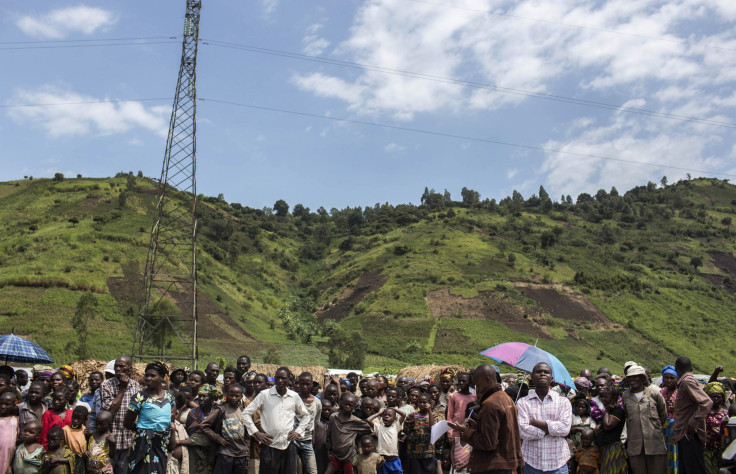Congo Mayhem Spills Into Uganda As Refugees Flee Militia Attack

Thousands of Congolese refugees have poured into Uganda following an attack launched by former Ugandan rebels on Thursday in the volatile eastern region of the Democratic Republic of the Congo.
The Allied Democratic Forces, or ADF, is an Islamist group that originated as an insurgent movement in Uganda during the 1990s. The rebels relocated to the eastern Congo after being driven out of their base in western Uganda by government forces.
Thursday's attack occurred in the DRC's eastern North Kivu province. The region, which is rich in mineral resources, is home to several militant groups and has been largely beyond the reach of Congolese security forces for decades.
The Uganda People's Defense Force, or UPDF, has been sharing intelligence regarding the ADF with the Military of the Democratic Republic of the Congo, known as FARDC in French. But there's some disagreement as to which national force is ultimately responsible for addressing the threats posed by the militia.
"The threat is real. ADF is recruiting, training and opening new camps in eastern DRC. We are alert and very prepared to deal with any attack on our side of the border," UPDF spokesman Paddy Ankunda told the United Nation's IRIN news service shortly before the attack. "We are sharing intelligence information with the DRC government [and] FARDC about their activities. We hope FARDC will be able to deal with the group."
By Friday, Uganda had a new problem on its hands: an estimated 18,000 migrants seeking refuge in the rift basin of Lake Albert -- the largest influx into the region in years
"The humanitarian facilities are inadequate to handle this large influx ... we have asked the U.N. refugee agency for urgent help," Ankunda told Dow Jones Newswires on Friday.
As for the ADF, Ugandan authorities hope that the UN peacekeeping force recently authorized to carry out combat operations in the eastern Congo will be able to contain the conflict.
A December report from the International Crisis Group said that the ADF is sustaining itself via a network of criminal groups, including Somalia's al-Shabab. The ADF is funded by various operations, including taxi services in the eastern Congo and exports of minerals and timber to Uganda.
Although the FARDC has responded to Thursday's attack with force, the ICG report recommended a longer-term solution that would focus on economic and social incentives rather than military action.
"It would be wise to separate fiction from fact and instead pursue a course of weakening its socio-economic base, while at the same time offering a demobilization and reintegration programme to its combatants," the report said.
© Copyright IBTimes 2024. All rights reserved.





















